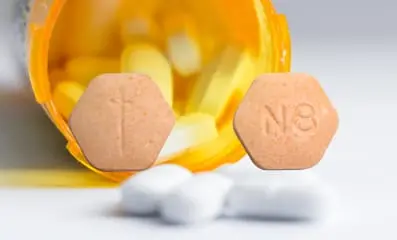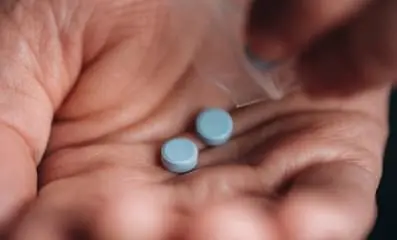
What is Crack Cocaine?
Crack is a concentrated form of cocaine that is formed into a crystalized rock form and is typically smoked. Crack is often cut with additives such as baking soda to increase drug profit. Since crack has a low cost, it is a drug of choice among people with substance use disorder who enjoy amphetamine effects.

Key Takeaways
Crack is a powerfully addictive drug to get hooked on and can be life-threatening in long-term or even one-time use.
- Crack is made out of cocaine and formed into a crystal rock that is commonly smoked and considered to be more addictive than cocaine.
- Crack disrupts natural brain functioning, affecting natural levels of dopamine produced, causing people to abuse the substance.
- Crack is an intense rush of euphoria but only lasts between five to 15 minutes, causing people to use more and develop drug tolerance or dependence.
- Crack use comes with physiological and psychological side effects and risks that can even cause death.
- Crack can remain detectable in the body for as little as 24 hours or a year, depending on drug testing methods and other factors.
Crack is a highly concentrated form of cocaine and can cause addiction right from the jump. Crack addiction should not be taken lightly and should be treated accordingly to avoid the risks of the potential side effects that may occur.
Crack Cocaine Facts
Cocaine is made from the coca plant indigenous to South America, specifically Columbia, Bolivia, and Peru. The cocaine is smuggled into the United States and other parts of the world.
Cocaine is composed of two elements: hydrochloride salt and freebase powder.
When crack is smoked, the effects occur immediately but are short-lived. Because the short, high effects of crack produce an addictive euphoric rush, it has the potential to enable users to develop a dependency on the drug. People may binge on the substance and experience significant comedowns, making drug use more addictive to avoid a crash.
Smoking crack can impose serious life-threatening risks and concerns, whether you are a first-time user or a long-term user. People may experience heart attacks and seizures as well as physical, emotional, and mental health deterioration due to crack use.
Crack Cocaine Street Names
When crack is smoked, it produces a crackling because of heat application, hence the name “crack.” However, the drug has a variety of street names that are interchangeable depending on the region and demographic.
Here are some examples of street names for crack:
- Snow rock
- Badrock
- Pixie Dust
- Crumbs
- Apple jacks
- Dice
- Booger sugar
- Hail
- Sleet
- Rocks
- Ice cube
How Long Crack Cocaine Stays in the Body
Several different drug testing methods have specific timeframes for detection. Detection also varies depending on the person and certain factors.
- Blood tests: Crack is detectable in the blood for 24 hours or up to two weeks for heavy users.
- Urine tests: Crack can be detected in urine for up to three months.
- Saliva tests: Crack can be found in the saliva between one to two days.
- Hair tests: Crack can be detected in hair follicles between three months to a year, depending on how heavy it is being used and how slow the hair grows.
Certain factors determine how long crack can stay in the body. The longer and larger the amount of crack used, the longer it will stay in your system.
Another contributing factor to detection duration is metabolism. If users have a quick metabolism, crack leaves the system faster versus users with a slower metabolism.
The age of users may also impact the length of time the substance remains in their system because as people age, their metabolism slows down. Also, medications, body fat, and infections can change the metabolism, increasing the lifespan of crack detection in the body.
Feelings Produced by Crack Cocaine
Compared to other class-A drugs, the feeling of crack use does not last long. The effects happen immediately after use but typically only last between five to 15 minutes. Crack releases a large amount of dopamine to the brain, causing people to feel euphoric. Crack makes users feel energized, focused, and powerful or invincible to danger. After the effects diminish, people begin to experience the comedown phase, where strong cravings to use again develop and can lead to substance abuse.
Frequently Asked Questions (FAQ)
Crack cocaine use can lead to serious health problems such as heart disease, stroke, respiratory problems, and cognitive deficits. It can also increase the risk of infectious diseases like HIV and Hepatitis. Long-term crack use can lead to mental health disorders such as depression, anxiety, and paranoia.
The legal consequences of possession or sale of crack cocaine can result in criminal charges that include fines, probation, or incarceration. The exact penalties vary depending on the location, quantity amount, criminal history, and distribution involvement. Punishments may be more severe under federal law in the United States.



